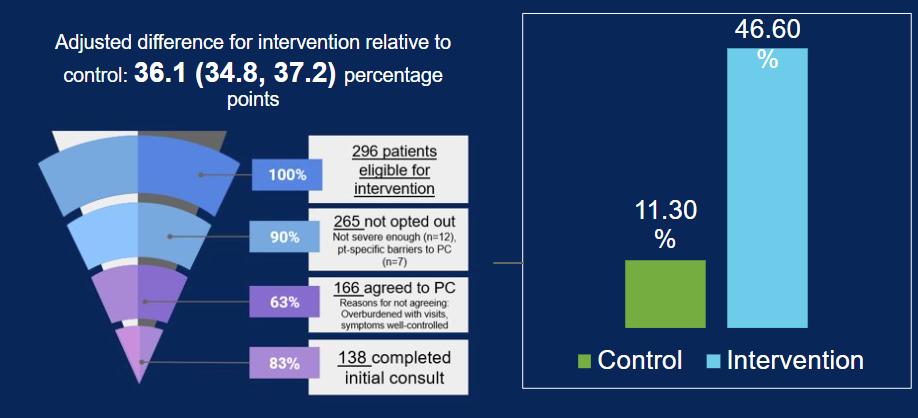
Palliative care can provide relief from the symptoms and stress of serious illnesses such as cancer. We run pragmatic trials in community oncology settings utilziing the EHR and behavioral economic principles to increase palliative care referrals among high-risk patients.
In our study, BE-EPIC (Behavioral economic interventions to embed palliative care in community oncology), we implemented an intervention consisting of default palliative care referrals - administered by a CRC - to oncologists at Lancaster General Health to increase rates of PC referrals and utilization among patients with advanced solid cancers. The primary study hypothesis is that default PC referrals directed to clinicians, with an opt-out option, will increase rates of PC utilization in a community oncology setting.
We applied these principles to a larger community health setting with BE-a-PAL (Behavioral Economics and analytics to improve PALliative care in advanced cancer). BE-a-PAL was a pragmatic cluster-randomized trial across 15 community oncology practices across Tennessee. We utilizied algorithm-based default palliative care referrals embedded in the EHR with option for clinician opt-out. Rates of completed palliative care visits were 46.6% in the intervention arm compared to 11.3% in the control arm. In short, our intervention led to a 3-fold increase in specialty PC and decrease in end-of-life chemotherapy in a large community oncology network. Additional qualitative analysis among clinicians is ongoing.

